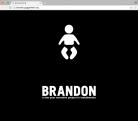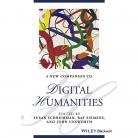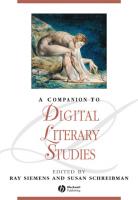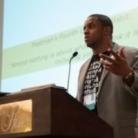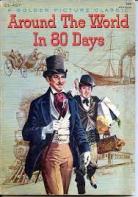History of Digital Humanities
Created by April Patrick on Sun, 06/18/2023 - 10:01
Part of Group:
We'll use this timeline together in class on Monday 19 June and in our homework for Tuesday 20 June to organize important moments in the history of digital humanities. Each group should add three (3) dates to the timeline.
Timeline
Chronological table
| Date | Event | Created by | Associated Places | |
|---|---|---|---|---|
| circa. 1748 to circa. 1832 |
Manuscript papers written by Jeremy BenthamThe audience of digital humanities has been created rather than just been a receiver of content. The aim of transcribe Bentham project is to engage the public in online transcrption of original and unstudied manuscripts. |
Fatemeh Masoumi | ||
| circa. 1940 to circa. 1949 |
first index of items on computerRoberto Busa indexed the works of Thomas Aquinis |
April Patrick | ||
| 1963 |
Founding the Centre for Literary and Linguistic ComputingRoy Wisbey founds the Centre for Literary and Linguistic Computing at CU |
Anna Biffi | ||
| 1963 to 1963 |
foundation of the Center for Literary and Linguistic ComputingRoy Wisbey founds this department at Cambridge University |
Anita Bernabovi | ||
| 1963 |
Foundation of the center for literary and linguistic ComputingProfessor Roy Wisbey was a pioneer in the field of digital humanities
|
Arianna Chendi | ||
| 1965 to 1970 |
Black DHBlack studies and Black DH are born (late 60s) Nearly 20 years after the first appearance of this discipline, which was in 1940s. |
Anita Bernabovi | ||
| circa. 1966 to circa. 1978 |
Computers and the humanitiesVarious professional organizations are founded and publications developed to assist scholars interested in the possibilities of using computers in the humanities. |
Caterina Boccalatte | ||
| 1984 |
Audre Lorde’s speechAudre Lorde spoke at the New York university's institute for the humanities conference in 1984, the name of her famous speech is "the master's tools will never dismantle the master's house". |
Arianna Chendi | ||
| 1989 |
Series of joint conferences by the ACH and the ALLCSeries of conferences, hosted jointly by the Association for Computers and the Humanities and the Association for Literary and Linguistic Computing since 1989. |
Yulia Delyaeva | ||
| 1992 |
Foundation of the IATHThe IATH, acronimus of Institute for Advanced Technology in the Humanities, is founded at the University of Virginia. It permits the development of digital humanities projects, such as The William Blake Archive, The Rossetti Archive, TheValley of the Shadow Project, and The Walt Whitman Archive. They provides access to students and scholars to the mayority of pictorial and textual works along with a large contextual corpus of materials, increasing the education through internet. |
federica dal zotto | ||
| 1992 |
IATH: Transforming Digital Humanities ResearchIATH is a research institute that combines technology and humanities to explore different aspects of human culture. They develop digital tools and projects to study history, literature, and art. IATH collaborates with scholars, technologists, and cultural institutions to create digital archives and analyze humanities data. Their work has led to influential projects like The William Blake Archive and The Walt Whitman Archive. IATH continues to drive innovation in digital humanities research. |
Fatemeh Masoumi | ||
| 1998 to 1999 |
Formation of Queer Digital CulturesCommissioned by the Solomon R. Guggenheim Museum, Brandon (1998–99) by Shu Lea Cheang is a landmark art project that spans disciplinary boundaries. One of the most ambitious projects that the new media artist and activist had realized at that point in her career, the web artwork was inspired by the story of trans man Brandon Teena. The work explores “issues of gender fusion and the techno-body in both public space and cyberspace” through a meta-narrative structure defined by hyperlinks to a network of connected interfaces that begins with the splash page.
Sources |
Aleksandra Glazkova | ||
| circa. 2000 to circa. 2010 |
Humanities computing is replaced by Digital HumanitiesDigital humanities gains recognitiion through the American Counclin of Learnd Societies
|
Giulia Randi | ||
| 2000 to 2000 |
Distant readingThe term 'distant reading' is coined by Moretti. He is a provocative expert who has a different approach to literature studies. |
Anita Bernabovi | ||
| 2001 |
Definition of Digital HumanitiesThe field was known as humanities computing |
Alessia Costa | ||
| 2001 |
Creation of the term "Digital Humanities"Unsworth came up with the term "Digital Humanities" as the title of a book referring to the matter. |
Anna Biffi | ||
| Apr 2001 to Nov 2001 |
The original term of Digital HumanitiesThe real origin of that term [digital humanities] was in conversation with Andrew McNeillie, the original acquiring editor for the Blackwell Companion to Digital Humanities. We started talking with him about that book project in 2001, in April,and by the end of November we’d lined up contributors and were discussing thetitle, for the contract. Ray [Siemens] wanted “A Companion to Humanities Computing” as that was the term commonly used at that point; the editorial and marketing folks at Blackwell wanted “Companion to Digitized Humanities.” I suggested “Companion to Digital Humanities” to shift the emphasis away from simple digitization. |
Mahdi Zeinali | ||
| 2004 |
Publication of the Blackwell 'Companion to Digital Humanities'This collection represents a turning point in the field of Digital Humanities: it contains contributes and reflections of a wide range of therorists, disciplinary experts and library and information studies specialist about the Digital Humanities and its bond with traditional humanities studies. Other source: https://eadh.org/publications/blackwells-companion-digital-humanities |
Annachiara Marchese | ||
| 2005 |
Companion to Digital Humanities by Blackwell’s has been publishedThis is a crucial pubblication for the develop of the studies in DH |
federica dal zotto | ||
| circa. 2005 to circa. 2005 |
The creationDigital Humanities organization ( alliance) had been created. |
vanessa manzoni | ||
| 2006 to 2006 |
Digital Humanities InitiativeLaunch led by the National Endowment for Humanities (NEH) |
Annachiara Marchese | ||
| circa. 2006 |
The launch of the Digital Humanities Initiative by the National EndowmentThe launch in 2006 of the Digital Humanities Initiative by the National Endowment for the Humanities (NEH), then under the chairmanship of Bruce Cole and with leadership provided by Brett Bobley, a charismatic and imaginative individual who doubles as the agency’s CIO. |
vanessa manzoni | ||
| 2006 |
Launch of the Digital Humanities InitiativeBy 2005 Blackwell’s Companion to Digital Humanities had been published, and theAlliance for Digital Humanities Organizations had been established. There’s one more key event to relate, and that's the launch in 2006 of the Digital Humanities Initiative by the National Endowment for the Humanities (NEH), then under the chairmanshipof Bruce Cole and with leadership provided by Brett Bobley, a charismatic andimaginative individual who doubles as the agency’s CIO. |
Lidiia Mikhailova | ||
| 2007 to 2012 |
The Queer Technologies ProjectThe artist Zach Blas addressed queerness directly throughcritical making with his Queer Technologies project. “For us,” writes Blas with his collaborator cárdenas in an article outlining the work ofQueer Technologies, “Turing is a crucial historical figure for thinking the politics ofdigital technologies from queer and feminist perspectives” |
Mahdi Zeinali | ||
| 2007 to 2012 |
Queer Technologies ProjectQueer Technology is an organization that produces products for queer technologies agency, intervention and social intervention. The project is consituted of a series of installations, art objects and a suite of creations that explore the relationship between queerness and technology. |
Caterina Boccalatte | ||
| circa. 2008 |
The Office of Digital Humanities bornIn 2008 the Digital Humanities Initiative became the Office of Digital Humanities, the designation of “office” assigning the program (and its budget line) a permanent place within the agency. |
vanessa manzoni | ||
| 2008 |
Publication of the "Companion to Digital Literary Studies"Blackwell Publishing presents a volume dealing with the influence of new technologies on literary studies. |
Federica Filippi | ||
| 2008 |
Digital Humanities Initiative became the Office of Digital humanitiesThe field now coìan be seen as something permanent. |
Anna Biffi | ||
| circa. 2009 |
"Big news"During the 2009 MLA convention as " The next big thing " to appear in the humanities and literary studies in a long time. |
vanessa manzoni | ||
| 2009 |
Digital Humanities 2009 conferenceAmanda French ran the numbers and concluded thatnearly half (48 percent) of attendees at the Digital Humanities 2009 conference weretweeting the sessions. By contrast, only 3 percent of MLA convention attendeestweeted; according to French’s data, out of about 7,800 attendees at the MLAconvention only 256 tweeted. Of these, the vast majority were people already associated with digital humanities through their existing networks of followers. |
Lidiia Mikhailova | ||
| 2010 |
The humanistic disciplinesThere is a specific history of the term digital humanities, detailed by my friend (and English scholar) Matthew Kirschenbaum in a 2010 article in the Association of Departments of English Bulletin |
Alessia Costa | ||
| circa. 2016 to circa. 2016 |
Debates in the Digital humanities by Roopika RisamRoopika Risam in her edition of Debates in the Digital Humanities introduced the field of digital humanities to Black feminism. |
Giulia Randi | ||
| circa. 2017 |
A letter "I can’t breathe" by Jarrett DrakeI have watched white co-workers and colleagues in this profession stay complicity silent as state agents slaughter Black people in the streets. I cried when Mike got killed.When Tamir got killed. When Freddie got killed. When Sandra got killed. When Korryn got killed. I cried again when, in each case, the state held no one accountable. I want to cry right now as I process that yet another Black person, Philando Castile, was taken by the state yet his killer walks free. Another mother buries a son, a partner buries a partner, a daughter buries a father. State assaults on Black boys and men often have a ripple effect of impacting 3x as many Black women and girls, as is the case with Philando. The silence suffocates me in the open air; at work, at conferences, orany where large number of professional archivists congregate. |
Paras Chavre | ||
| 2017 |
Jarret Drake's statement letterFormer digital archivist at Princeton Jarret Drake writes a letter addressing his white co-workers for not standing up in front of the violence black people had and still have to face up with, even in his profession. |
Anna Biffi | ||
| The middle of the month Summer 2023 |
DHBlack Digital Humanities (DH) is an emerging field that focuses on the intersection of Black studies and digital technologies. It seeks to address the historical marginalization and underrepresentation of Black people and Black culture in the digital realm. The concept of "queer OS" refers to a mindset and approach that challenges normative boundaries within digital environments. It involves thinking and acting with, about, through, among, and sometimes even in spite of new media technologies and other forms of mediation. By incorporating the lenses of sexuality and race into DH, researchers aim to uncover and address issues such as algorithmic bias, discriminatory practices, and unequal access to digital resources. |
Sonia Rezapourahangar |







